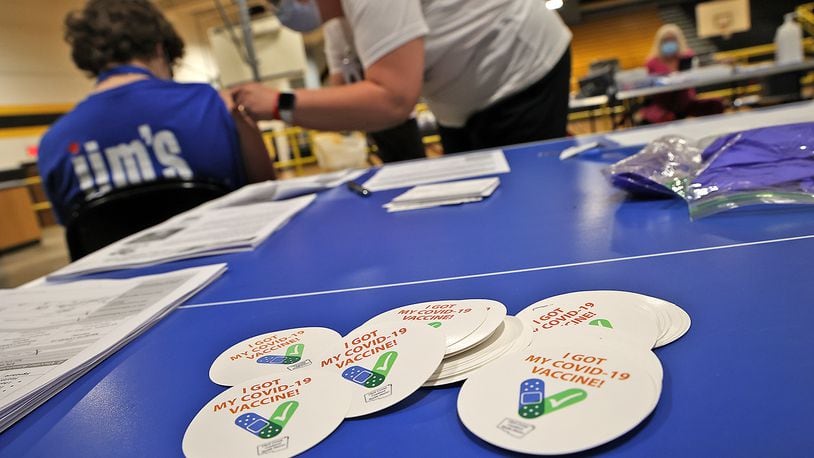The third dose is the same vaccine that adults previously received, but Vanderhoff noted that major pharmaceutical companies are studying “augmented boosters” aimed at targeting COVID-19 variants, including delta. However, that research and testing would have to go through a process similar to what the first Moderna and Pfizer vaccines went through.
Research supports that both vaccines still offer protection against serious illness or death from COVID-19 and its variants, he said.
“We need to remember that protection against severe illness and death was the in fact the original goal of these vaccines,” Vanderhoff said. “Vaccines against respiratory viruses rarely protect against mild to moderate infections as well as they protect against severe illness because they’re much better at inducing immunity in the lungs than in the nose, where respiratory virus first infect our bodies.”
While immunity against mild to moderate illness may wane over time, he added protection against severe illness and death is more likely to endure.
“We’re going to see COVID-19 and its lineage for a long time, but we should be able to get to a point through immunity where we’re not going through these constant cycles of waves of illness,” Vanderhoff said.
As more people are vaccinated, communities will collectively build substantial immunity against COVID and decrease the virus’ opportunity to mutate and create new versions.
In the meantime, health care experts are continuing to encourage those who are eligible to get vaccinated and for everyone to wear masks while indoors with people outside their household and while at mass gatherings.
On Tuesday Gov. Mike DeWine warned that the spread of the delta variant is putting Ohio’s ability to return to in-person learning at risk.
Some K-12 schools have already begun the new school year and others are welcoming students back this week.
While Ohio hasn’t mandated masks in the classroom, the governor is urging students and teachers to wear them.
“We are clearly well past the time when the state can mandate to parents and school districts what actions to take,” DeWine said. “These decisions today rest with the parents and school officials. Our children simply cannot afford another disrupted school year.”
Michael Forbes, pediatric intensive care specialist at Akron Children’s Hospital, said Ohio’s in a new stage in the pandemic.
“This year it’s frankly something we can spread or something we can contain,” he said. “...We have the power to chose to end the spread, limit the propagation and really minimize the impact of this virus and this pandemic on our culture.”
As a pediatrician, Forbes said he’s concerned about pediatric COVID and deaths due to pediatric COVID.
“Now we have mutated the virus to the point where children are now also being infected, being harmed, being critically ill and even losing their lives because the virus was given opportunities to propagate and mutate,” he said.
Craig Dues, director of the Department of Emergency Medicine at Mercer Health in Coldwater, said the hospital is seeing an increase in pediatric and adult cases.
After weeks of going without any COVID inpatients in June, Dues said staff is now seeing three to four COVID patients a day for inpatient care. About 80% of those infected are unvaccinated, and those who are vaccinated were able to recover “uneventfully,” he said.
“From my perspective as a physician in the trenches seeing COVID patients every day, the vaccine is extremely effective at preventing serious illness,” Dues said.
To prevent getting ill and spreading the virus to others, he encouraged people to get vaccinated and follow other preventative measures, such as wearing face masks, socially distancing and frequently washing hands.
“This is a vaccine-preventable illness,” Dues said. “This is an illness you can prevent the spread, you can prevent serious complications.”
About the Author
